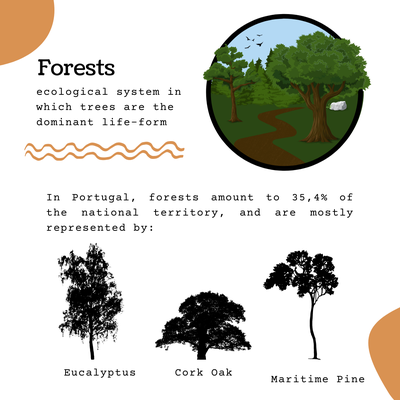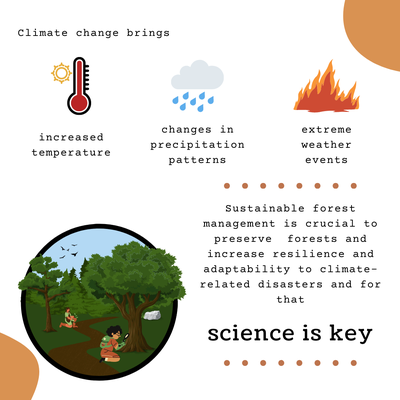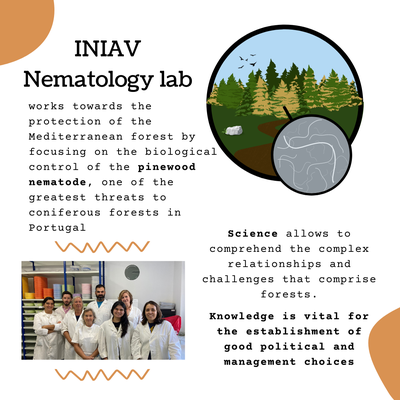Forests: to preserve and to hold
The relationship between humans and forests has been a prosperous one. Throughout history, forests have been paramount for the environment, economy, and society, as a provider of multiple goods and services. Coming in various shapes and sizes, forests are a complex ecological system recognizable by their dominant life-form: trees.
However, this relationship is currently under threat as climate change brings along increased temperatures, changes in precipitation patterns, and extreme weather events. These will inevitably have a widespread impact on forests and their ability to provide essential ecosystem services.
In Portugal, forests take up about 3.2 million hectares, amounting to 35,4% of the national territory. With no single species overpowering the territory, Portugal has a wide variety of forests, resulting in four main groups: evergreens (cork and holm oaks), pines (maritime and stone pine), eucalyptus, and deciduous (oaks and chestnut trees). In terms of species, the situation renders three main ones: eucalyptus, cork oak, and maritime pine. This reflects the country’s economic needs, as these species have predominantly industrial applications, such as pulp, wood, and cork.
As such, it is expected that climate change will have a major impact on the Portuguese forestry sector. At an economic level, it puts at risk the competitiveness of the sector and the viability of many work posts. Environmentally, the effects are as devastating and can go from affecting the hydrological cycle to affecting soil and biodiversity.
Sustainable forest management is indispensable to preserve this longtime affair with forests and increase resilience and adaptability to climate-related disasters. To opt for the best sustainable management, science is key.
At the GREEN-IT Research Unit, several researchers are focused on understanding and assessing the mechanisms involved in the decline of the Portuguese forest, with the ultimate goal of establishing more sustainable forest management. A great example is the GREEN-IT members of the Nematology lab at INIAV, who work towards the protection of the Mediterranean forest by focusing on the biological control of the pinewood nematode. The researchers explore the potential of antagonistic fungi in the suppression of the nematode, as well as natural compounds with potential nematicidal properties, to fight one of the greatest threats to coniferous forests in Portuguese territory.
By ascertaining and comprehending the complex biotic and environmental relationships and challenges that comprise forests, science allows for a solid foundation upon which to establish political and management choices. As the consequences of climate change start to emerge, it is imperative to apply this knowledge and take on serious measures if we are to secure this vital ecological system and make this union last.
March 21st marks the International Day of Forests, bringing awareness to this ecosystem and the necessity to preserve and protect it.





